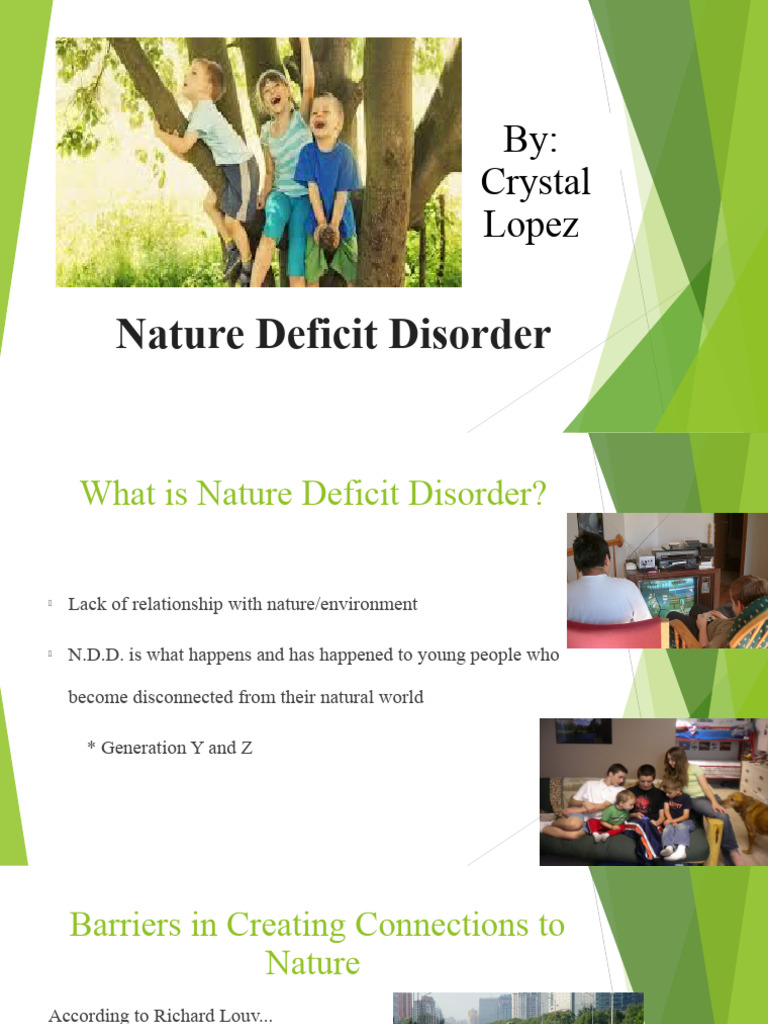In an increasingly urbanized and technologically saturated world, individuals find themselves ensnared in a milieu characterized by disconnection from the natural environment. This phenomenon, often termed “Nature Deficit Disorder” (NDD), encapsulates a range of negative mental health impacts stemming from insufficient interactions with nature. The Bahá’í teachings, with their profound emphasis on spiritual development and connection to the divine, merit exploration as a means of addressing this burgeoning issue. Through the lens of spirituality, a narrative of healing and holistic wellness emerges, integrating both personal and collective responsibilities towards fostering a sustainable and harmonious existence.
At the heart of Bahá’í philosophy lies the concept of the oneness of humanity. This principle is instrumental in understanding human well-being not only in terms of individual psychological health but also in relation to the environment and community. Acknowledging that individuals thrive when their connections to the natural world and their communities are nurtured encourages a multifaceted approach to healing the soul from the malaise of NDD. Interpersonal relationships and communal solidarity foster resilience and emotional stability, which counteract feelings of isolation that often accompany disconnection from the natural environment.
Moreover, the Bahá’í teachings advocate for the pursuit of knowledge coupled with action. Education is pivotal in cultivating a deeper understanding of nature’s critical role in human wellness. This education should not be confined to formal structures; rather, it should extend to experiential learning in natural settings. Engaging with nature—whether through hikes, gardening, or simply watching the stars—allows individuals to reconnect with the earth and, in turn, discover the deeper truths about their own existence. Such experiences not only invigorate the spirit but also illuminate the interconnectedness of all creation, reinforcing the importance of environmental stewardship.
Mindfulness and reflection are fundamental practices within the Bahá’í faith that can serve as therapeutic interventions to combat the effects of NDD. By engaging in meditation or contemplation within a natural background, individuals can cultivate a heightened awareness of both their internal landscapes and the external world. This dual awareness can lead to profound insights, enabling individuals to comprehend their intrinsic relationship with creation. The natural world, in its myriad forms, becomes a canvas upon which spiritual truths are painted, revealing an abundance of wisdom that can contribute to personal healing and growth.
The Bahá’í view of nature also incorporates a rich ecological ethos. In alignment with their spiritual teachings, Bahá’ís recognize the sanctity of the environment and advocate for sustainable practices. The connection between ecological health and the health of the human soul is irrefutable. When people actively engage in ecological restoration or conservation efforts, their sense of purpose is rejuvenated. This engagement shifts the narrative from passive observation to active participation, reaffirming the vital role individuals have in nurturing both the earth and their own well-being.
Furthermore, fostering a sense of community as a response to NDD aligns seamlessly with Bahá’í principles. Communities imbued with collective spirit, where individuals come together for the common good, provide fertile ground for healing. Organized community activities that promote environmental appreciation—such as tree-planting events or community gardens—can significantly bolster social cohesion while simultaneously rekindling appreciation for nature. These initiatives cultivate a sense of responsibility not just towards the local environment but also towards future generations. This generational commitment is crucial; Bahá’í teachings emphasize the importance of leaving a positive legacy for those who come after us.
Additionally, the integration of art and expression within natural contexts can serve as a unique conduit for healing. The Bahá’í teachings celebrate artistic expression as a divine gift, with profound potential to effect change. Art prompts individuals to explore their emotions, thereby facilitating healing from disconnection. Nature-inspired arts—be it painting, poetry, music, or dance—can help individuals articulate their feelings towards the environment. This form of expression not only conveys personal sentiments but also resonates with collective experiences, nurturing empathy and solidarity among community members.
Lastly, the Bahá’í belief in progressive revelation posits that spiritual truth evolves over time, adapting to the needs of society. This tenet encourages an open-minded approach to integrating scientific understanding with spiritual beliefs. Scientific studies continually reveal the myriad benefits of nature on mental health—benefits that include improved mood, reduced anxiety, and increased creativity. The synthesis of these scientific insights with Bahá’í spiritual principles provides a robust framework for addressing NDD. Through informed practice—incorporating both spiritual and empirical knowledge—individuals can empower themselves to foster deeper connections with nature.
In conclusion, the Bahá’í teachings offer a multifaceted approach to healing the soul from Nature Deficit Disorder. By infusing principles of oneness, education, mindfulness, ecological responsibility, community engagement, and artistic expression within the fabric of individuals’ lives, a profound transformation can occur. Healing is not merely a personal journey; it is a communal endeavor that requires a reconciliatory engagement with the world around us. As people reconnect with nature, they invariably rediscover their innate divine potential, contributing not only to their own well-being but also to the broader tapestry of humanity’s collective journey towards spiritual and ecological health.
